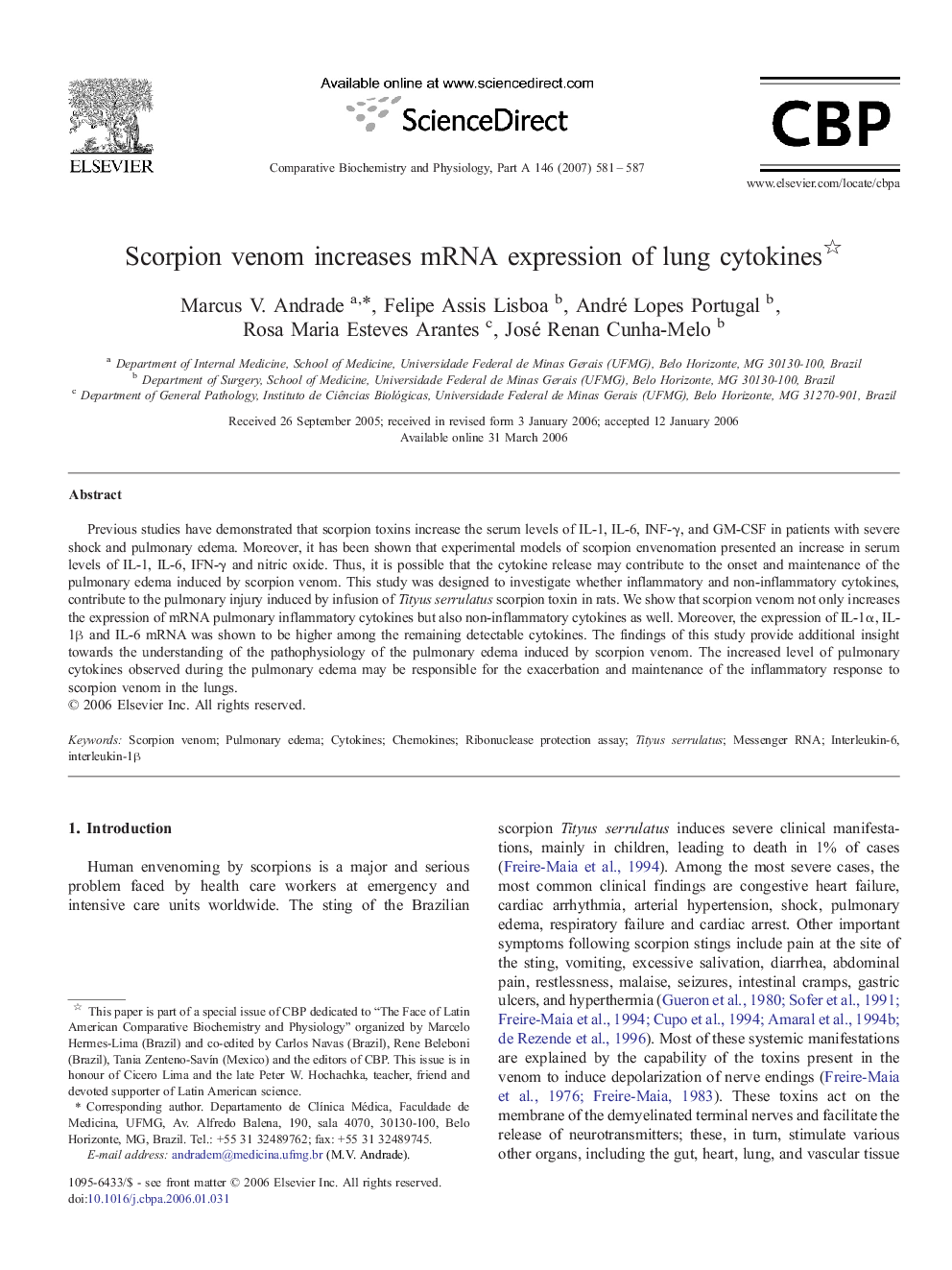| Article ID | Journal | Published Year | Pages | File Type |
|---|---|---|---|---|
| 1974880 | Comparative Biochemistry and Physiology Part A: Molecular & Integrative Physiology | 2007 | 7 Pages |
Previous studies have demonstrated that scorpion toxins increase the serum levels of IL-1, IL-6, INF-γ, and GM-CSF in patients with severe shock and pulmonary edema. Moreover, it has been shown that experimental models of scorpion envenomation presented an increase in serum levels of IL-1, IL-6, IFN-γ and nitric oxide. Thus, it is possible that the cytokine release may contribute to the onset and maintenance of the pulmonary edema induced by scorpion venom. This study was designed to investigate whether inflammatory and non-inflammatory cytokines, contribute to the pulmonary injury induced by infusion of Tityus serrulatus scorpion toxin in rats. We show that scorpion venom not only increases the expression of mRNA pulmonary inflammatory cytokines but also non-inflammatory cytokines as well. Moreover, the expression of IL-1α, IL-1β and IL-6 mRNA was shown to be higher among the remaining detectable cytokines. The findings of this study provide additional insight towards the understanding of the pathophysiology of the pulmonary edema induced by scorpion venom. The increased level of pulmonary cytokines observed during the pulmonary edema may be responsible for the exacerbation and maintenance of the inflammatory response to scorpion venom in the lungs.
